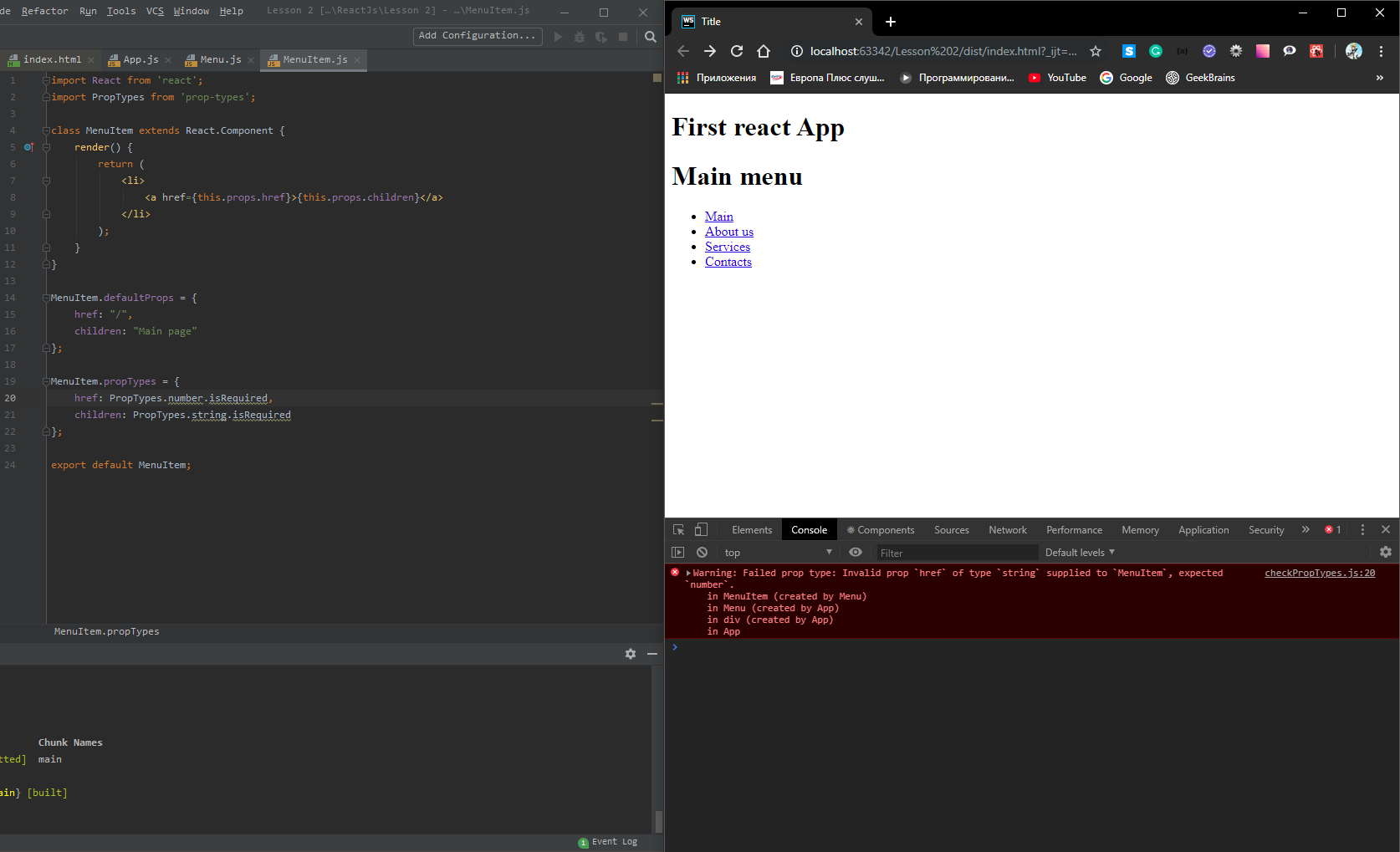Given a simple component that renders its children:
class ContainerComponent extends Component {
static propTypes = {
children: PropTypes.object.isRequired,
}
render() {
return (
<div>
{this.props.children}
</div>
);
}
}
export default ContainerComponent;
Question: What should the propType of the children prop be?
When I set it as an object, it fails when I use the component with multiple children:
<ContainerComponent>
<div>1</div>
<div>2</div>
</ContainerComponent>
Warning: Failed prop type: Invalid prop
childrenof typearraysupplied toContainerComponent, expectedobject.
If I set it as an array, it will fail if I give it only one child, i.e.:
<ContainerComponent>
<div>1</div>
</ContainerComponent>
Warning: Failed prop type: Invalid prop children of type object supplied to ContainerComponent, expected array.
Please advise, should I just not bother doing a propTypes check for children elements?


node– Keynes